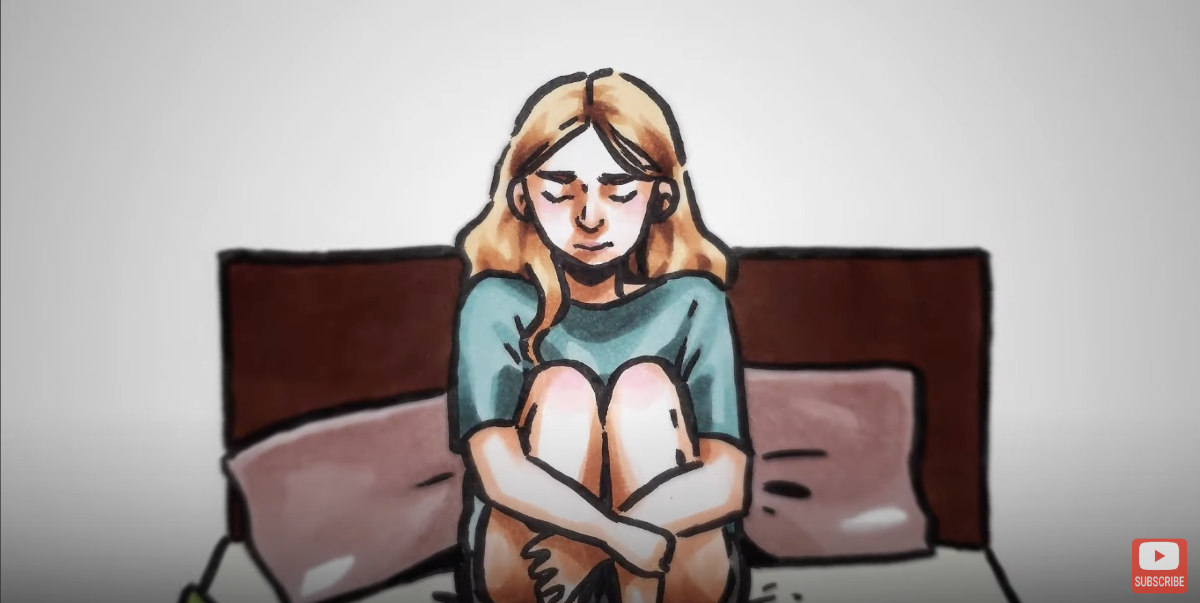Facing pressure to have an abortion — her second abortion, Courtney went to the abortion facility and was given the abortion pill. She later said it was harder on her than her surgical abortion had been because this time, she felt like the actual killer.
Believing that telling the abortion workers that she had changed her mind would make them “mad,” Courtney went through with an abortion she didn’t want. She was told it would be easy. It was anything but easy.
“They told me it was just a pill as safe and as easy as taking a Tylenol. They said it would stop my pregnancy and keep my embryo from becoming a baby,” she said. “But what they didn’t tell me is that it would essentially starve my baby to death by cutting off its nourishment and its blood.”
The first drug in the abortion pill regimen is mifepristone, which works to block the naturally occurring pregnancy hormone progesterone, which sustains the pregnancy and the growing baby. The second pill, misoprostol, causes contractions so the woman can birth her dead baby. But Courtney was not made aware of this part of the process.
“They gave me a second pill to take the next day,” she said. “They told me it was necessary to ensure my abortion was successful. But they didn’t tell me that the reason for it was to induce strong contractions to expel my baby’s corpse.”
Expecting “mild menstrual cramps,” Courtney got into her bed when she took the misoprostol, but what she experienced was not “mild.”
“My cramps were very intense and painful,” she explained, “because my body was expelling my baby’s body. My baby was disposed of in a toilet. A toilet. In some ways, this abortion was even harder on me than the surgical abortion, because in this abortion I felt I had aided in the murder of my child. I didn’t just make the decision to let a doctor do it. It was actually me engaged in the process.”
Courtney is not alone in her regret and remorse. A 2020 study analyzed the testimonies of women who took the abortion pill on the site AbortionChangesYou.com. The study found that 50% were pressured to abort by their baby’s father or other family members, 60% experienced post-abortion feelings of isolation and alienation, and 77% said they regretted the abortion. In addition, 38% reported problems with anxiety, depression, drug abuse, and/or suicidal thoughts as a result of the abortion.
READ: Patricia saw her baby after taking abortion pill: ‘The guilt… is impossible to describe’
One woman explained, “They lied to me and said they would give me some pills that would make it just like a late period with a little cramping … The pain of the contractions was so intense I felt like my intestines were pulled out slowly. I collapsed screaming on my bathroom floor, sweat, tears, blood, vomit, and sh*t all over me.”
Another said, “We were told we would go back to normal and it won’t affect us but they were wrong!!! All I feel is emptiness and hatred. I used to be the happiest most positive girl. All I want is to take it back.”
The study explained:
Negative changes often occurred when women’s actual abortion experience did not align with their preconceived ideas about what to expect. These ideas were informed by larger discourses from society, as well as messages from others (e.g., health care providers)….
[T]he women alluded to their initial expectations of what the medication abortion would entail or what others told them would happen after their abortion. When a woman’s actual medication abortion experience did not align with these messages, women felt disempowered, vulnerable, lost, upset, and sometimes deceived.
It’s important that women know of the availability of abortion pill reversal. The process has now saved more than 4,000 lives thanks to the Abortion Pill Rescue® Network (APRN) and its more than 1,200 medical professionals who are committed to providing real health care to those women who have changed their minds after starting a chemical abortion.
The abortion pill reversal treatment uses either oral or injected progesterone to counteract the effects of mifepristone, to help the baby continue growing and thriving. Progesterone treatment is not new, as it has been used to help prevent miscarriages since the 1950s. A 2018 observational study showed a 64% success rate in reversing the effects of mifepristone with the use of injected progesterone and a 68% success rate with the use of high-dose oral progesterone.
Healthcare professionals can join the Abortion Pill Rescue Network by visiting this website. For help with Abortion Pill Reversal, visit AbortionPillReversal.com or call 855-209-4848.







